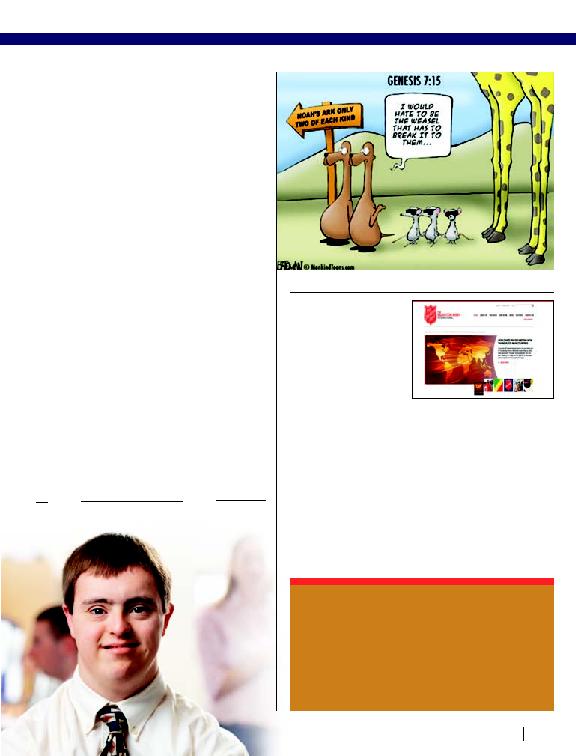
site on an updated platform. With a more contemporary
design and easier-to-find content, www.salvationarmy.org
now provides an even better overview of The Salvation
Army's work and ministry around the world. The updated
site features:
� Improved navigation, improved search function,
Twitter (Worldwide Prayer Meeting), Google Maps
(Zones), Timerime (interactive historical timeline),
Issuu (All the World and Revive publications)
� Better indexing by major search engines
Websites!
People with Disabilities
"The same way you would hope to be treated," writes
a youth and disability support worker. "That is with
DIGNITY & RESPECT at all times. Always remember
they are people first and foremost. They have the same
rights as you, and most are capable of making choices
and decisions for themselves. Be patient, caring and
understanding. Offer assistance, and wait for a reply
before trying to help. Never make assumptions, espe-
cially about their intellectual abilities. They don't want
pity. Offering it often leads them to dislike you. Never
take over anything they are trying to do. Ask if they
would like help, and back off if they say no.
"person first" attitude. Reference to "people with
disabilities" rather than to "disabled people" helps.
Words like "normal person" imply that the person
with a disability isn't normal.
from person to person. Don't generalize.
capable of thinking for themselves than anyone else.
not patronize them.
If the person with a disability has a communication
problem they will usually let you know and indicate
a preferred method.
person's life and makes fulfillment impossible.
Individuals find their own ways of adapting.
Association at www.unitedspinal.org.